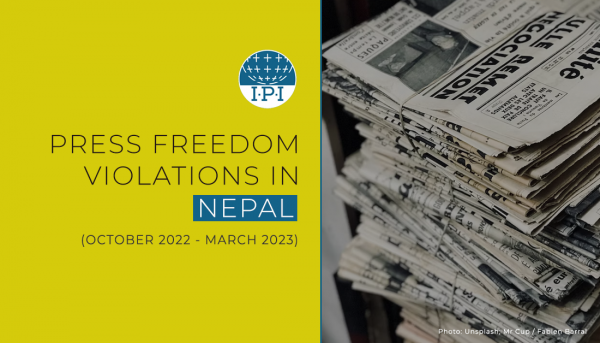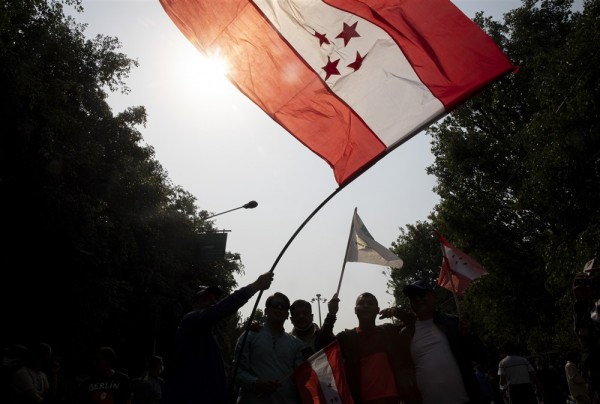In a report released last week by the International Fact-Finding and Advocacy Media Mission, a coalition of organisations dedicated to the promotion of freedom of expression and media development, members expressed concerns about Nepal’s media environment and the impunity surrounding attacks, even deadly ones, against journalists in the country.
The report is based on the findings of a mission to Nepal carried out in February 2012 by representatives of 13 members of the coalition, including the International Press Institute (IPI), who met with representatives on Nepal’s government, opposition parties, media and civil society groups.
The core problems affecting the media in Nepal, as identified in the International Mission’s report, are the inadequate legal guarantees for press freedom and access to information, as well as the climate of violence against journalists and the authorities’ failure to bring perpetrators of attacks against journalists to justice, in particular in the regions outside the Kathmandu Valley.
Other problems also include a lack of transparency in media ownership structure and the influence of political parties on media content. Finally, the influence of media owners’ private interests in media content, as well as lack of professional security and adequate journalistic training all contribute to poor journalistic standards.
“While the number of attacks on journalists declined after 2009, the rate has remained unacceptably high and those responsible for murdering journalists still remain at large, promoting a culture of impunity,” the report states, pointing out that members of the International Mission recommended the creation of a multi-stakeholder taskforce, including representatives of state institutions as well as civil society and journalists groups, that would address the protection of journalists and work to end the culture of impunity.
Other recommendations put forward by the International Mission include amendments to Nepal’s constitution to strengthen protection for press freedom and the creation of an inclusive media policy for taking into account the changes taking place in the media environment.
Addressing the issue of attacks against journalists, the International Mission’s report recommends that Nepal enacts and enforces a witness protection law and that journalist murder investigations are allowed to proceed without political intervention.
“The mission recommendations are very relevant and should be implemented. But this needs continued follow-up by mission members with national partners. Likewise, international groups need to create programs aimed at strengthening the local freedom of expression groups and their capacity to monitor and advocate for press freedom and freedom of expression in Nepal,” said Taranath Dahal, chairperson of Nepali press freedom group Freedom Forum, and also the Secretary General of the IPI National Committee in Nepal.
“For years, IPI has supported the efforts of its members in Nepal to promote press freedom in their country, but journalists’ ability to report independently in Nepal continues to be challenged by a hostile climate and the government’s failure to protect the fundamental right to press freedom,” said IPI Acting Deputy Director Anthony Mills. “We urge Nepal to take the findings and recommendations of the International Mission very seriously, and to do more to ensure that journalists are able to report safely and independently about issues which are key to Nepal’s peace process and its democratic development.”


